Marine protected areas (MPAs) are critical tools in the conservation of marine species and habitats, safeguarding reefs, seagrasses, and mangroves that provide vital ecosystem services to coastal communities. At the Perry Institute for Marine Science (PIMS), we’ve been working closely with the Bahamas National Trust (BNT) on the Global Environment Facility 2020 (GEF2020) project, an initiative aimed at improving knowledge, assessing changes in key marine resources, building capacity, and strengthening the management of Marine Protected Areas in The Bahamas.
As part of this project, five national parks managed by BNT were selected as focal MPAs for our research:
- Andros West Side National Park
- Bonefish Pond National Park
- Exuma Cays Land and Sea Park
- Lucayan National Park
- Moriah Harbour Cay National Park
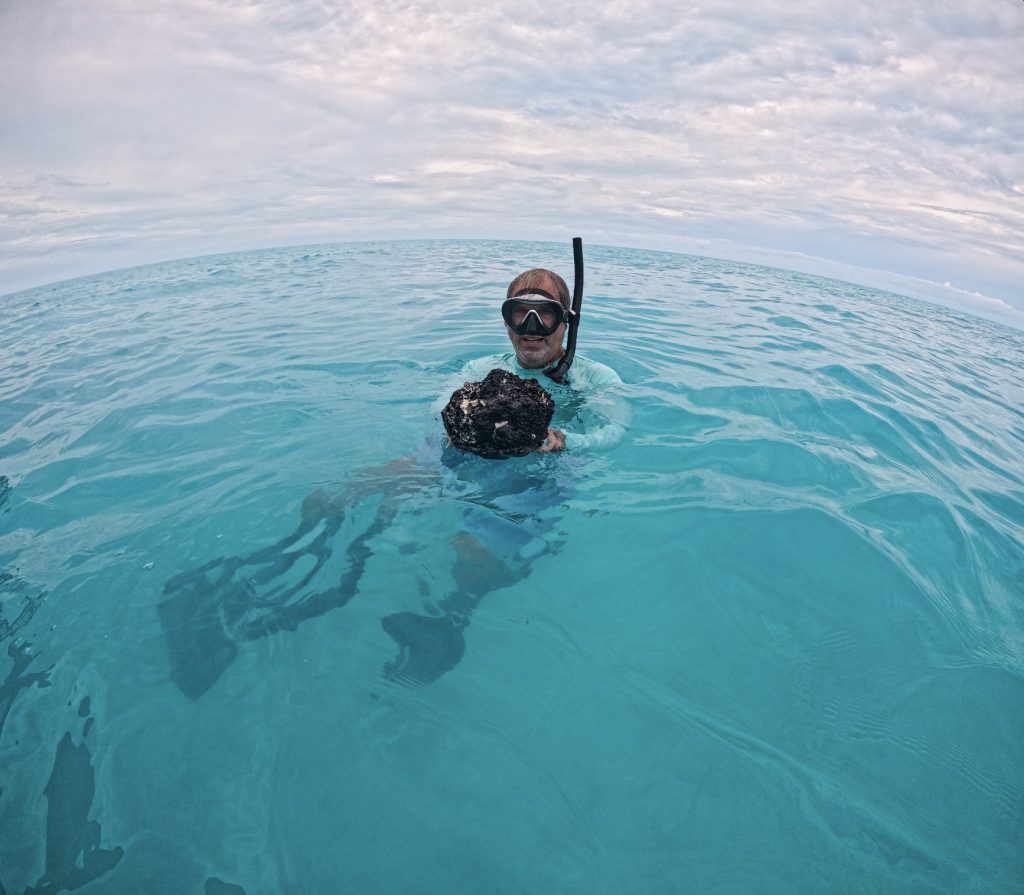
During the summers of 2023 and 2024, our team, led by Dr. Craig Dahlgren, collaborated with BNT technical staff and park wardens to collect ecological data on priority species within these parks. This data will guide conservation and monitoring plans tailored for each of these Marine Protected Areas in The Bahamass, supporting the sustainable use of the country’s marine resources.
Assessing Sponge Populations in Andros West Side National Park
In Andros West Side National Park, the focus was on assessing historic commercial sponge grounds, home to three critical species—grass, wool, and hardhead sponges. These species survived the sponge fishery collapse in the 1930s. With renewed interest in the sponge industry, it’s vital to understand the current status of these sponge populations and their recovery from harvesting pressure. Our research aims to develop best practices for a sustainable sponge industry while conserving this unique habitat.
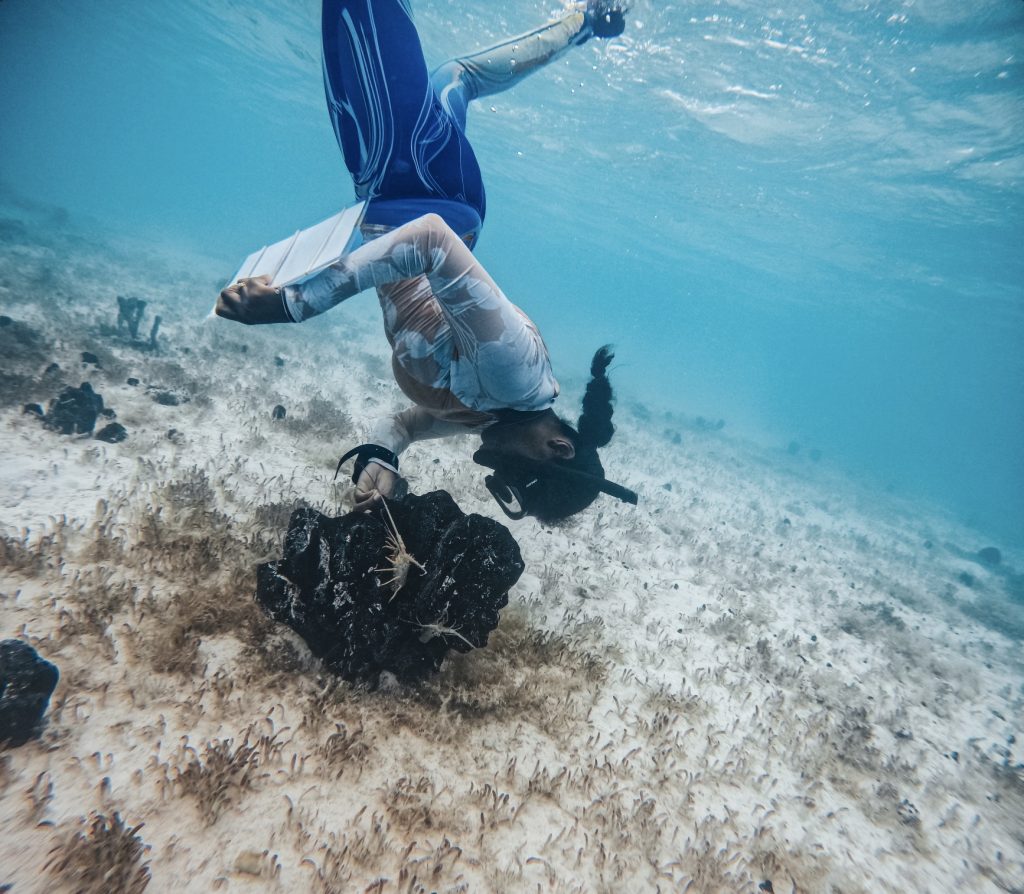
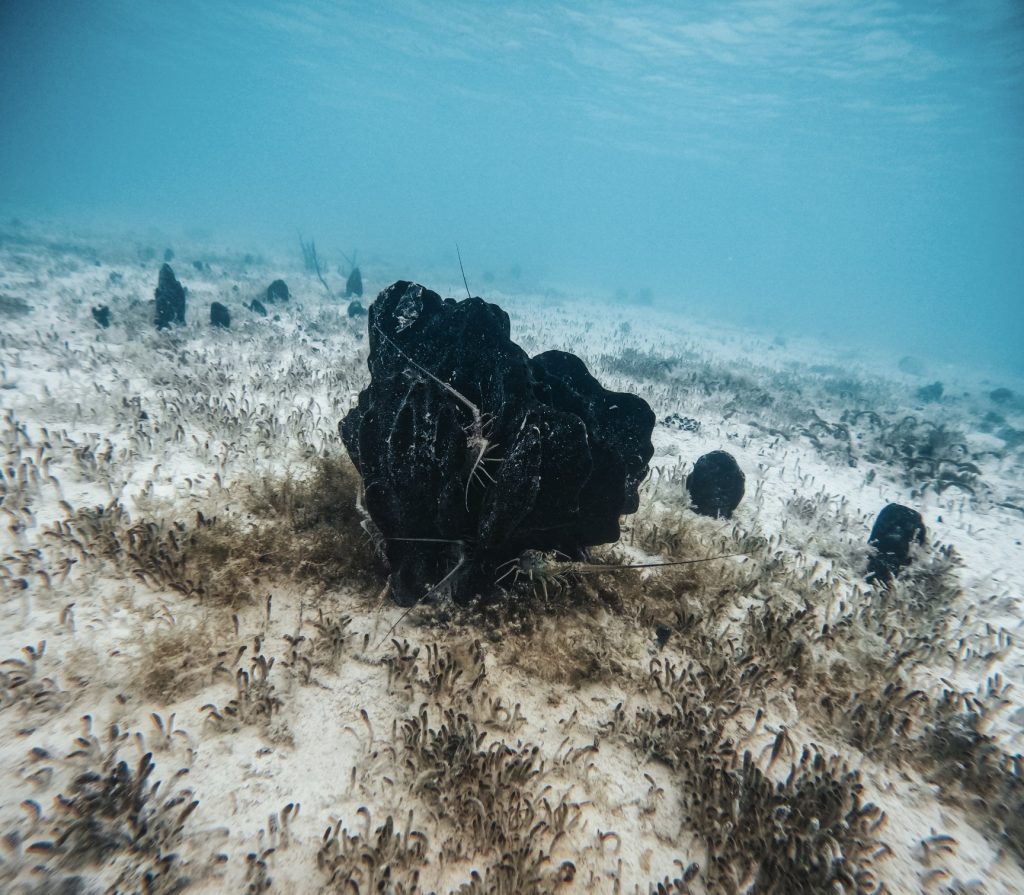
Lobster Recruitment in Bonefish Pond National Park
In Bonefish Pond National Park (i.e., Bonefish Pond), we installed collectors to monitor spiny lobster recruits. This park was restored over a decade ago to enhance its mangrove nursery habitat. The data will help us study lobster recruitment and assess the restoration’s success. This research is vital to understanding how this habitat supports spiny lobsters, a valuable commercial species in The Bahamas.
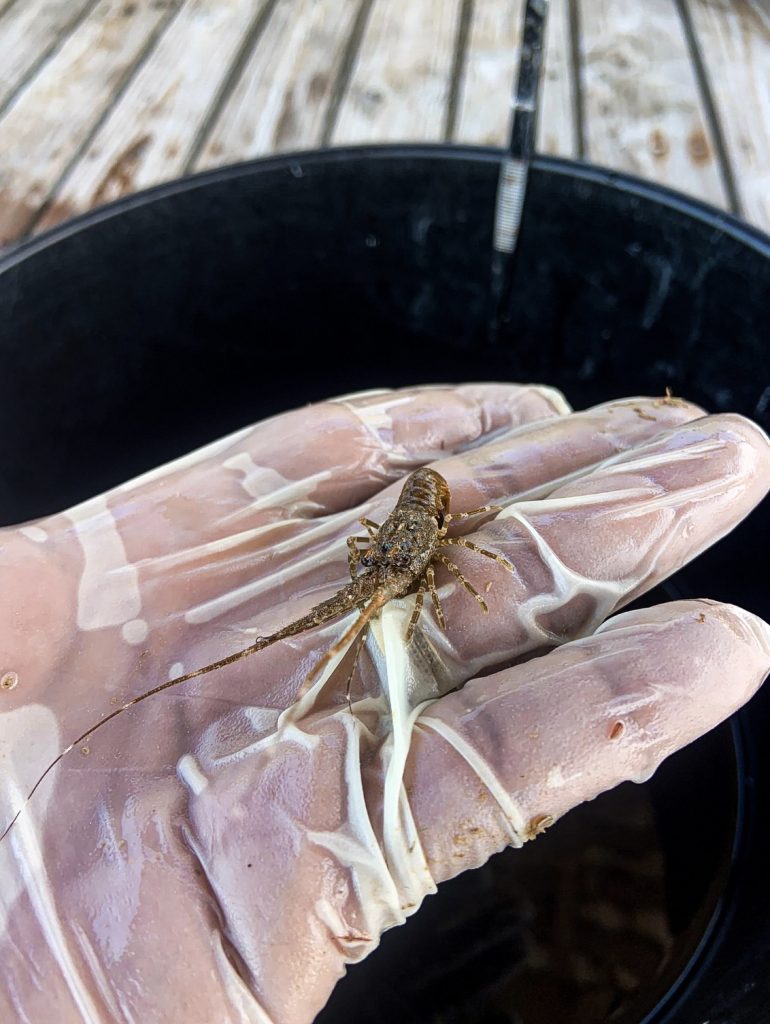
Monitoring Nassau Grouper in the Exuma Cays Land and Sea Park
Exuma Cays Land and Sea Park has been a no-take zone since 1986, offering a unique opportunity to study the critically endangered Nassau grouper. Using the Atlantic and Gulf Rapid Reef Assessment protocol, we conducted standardized fish surveys to collect data on the abundance and size of Nassau grouper within the park. This information is key to science-based management strategies, assessing the effectiveness of current Marine Protected Area design, and ensuring long-term conservation.
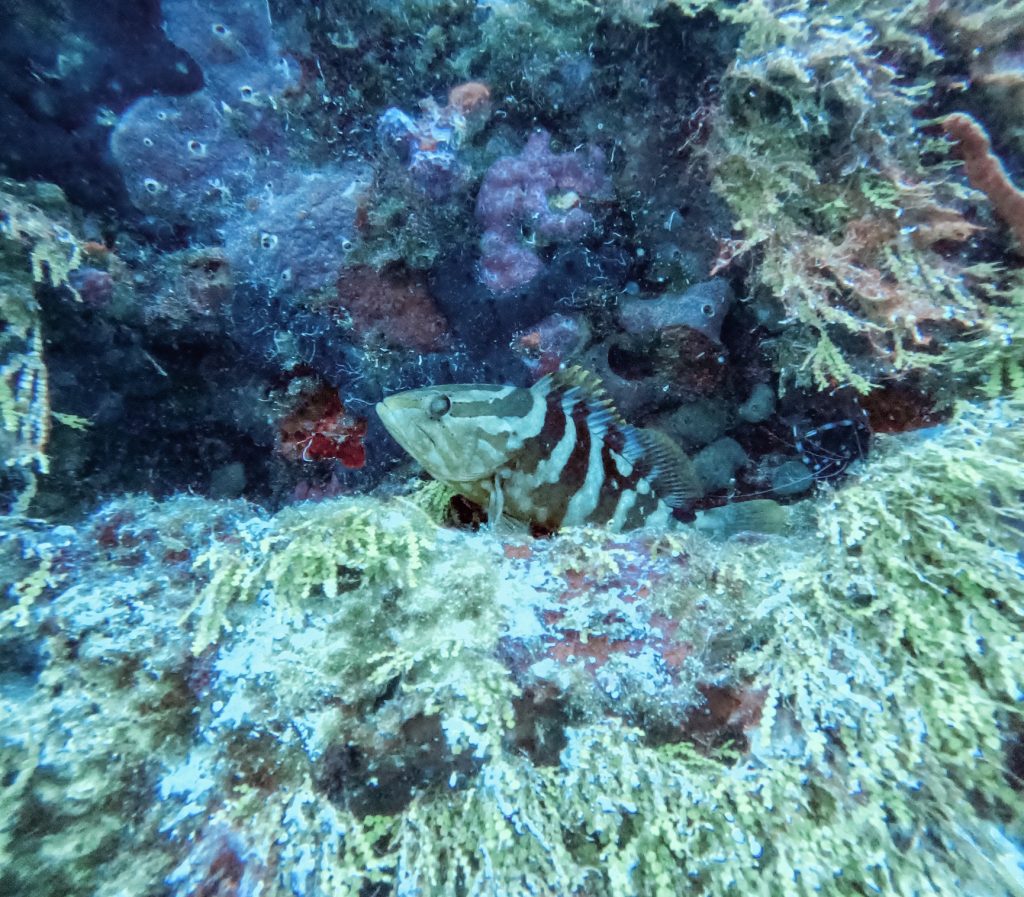
Coral Reef Assessments in Lucayan and Moriah Harbour Cay National Parks
In Lucayan National Park and Moriah Harbour Cay National Park, the focus was on threatened reef-building corals. We combined in-water coral reef surveys with aerial habitat mapping using commercial drones to document the conditions of staghorn and elkhorn corals. These corals form intricate three-dimensional structures that provide essential habitats for numerous fish and invertebrate species. Understanding the condition of these reefs is crucial not only for biodiversity but also for supporting sustainable fisheries in The Bahamas.
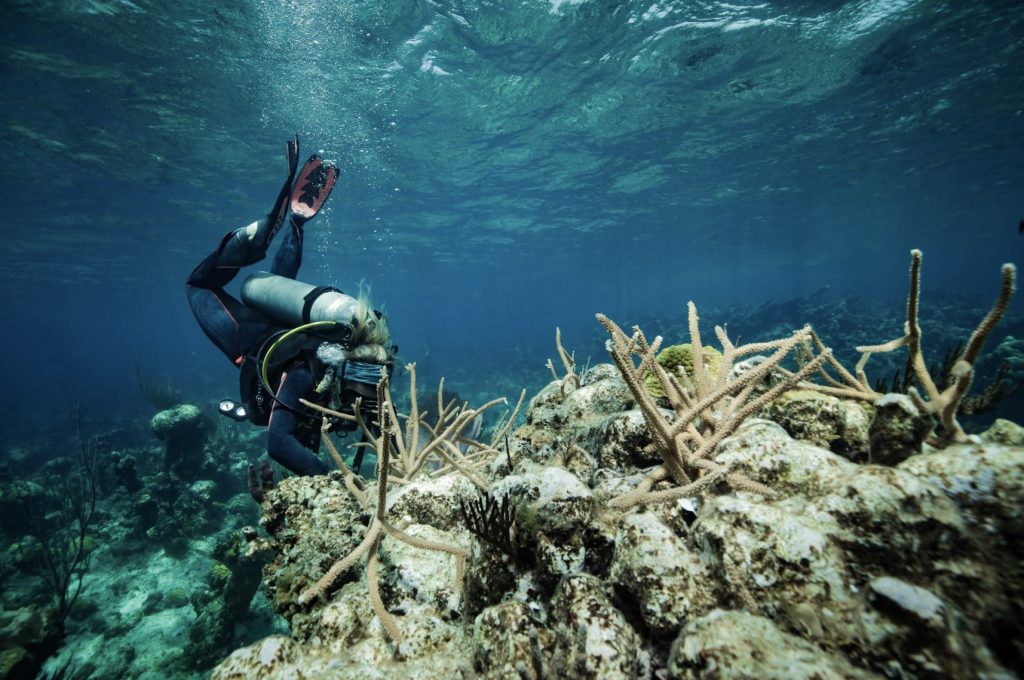
Next Steps and the Importance of Our Findings
In the coming months, our PIMS research team will process the data collected throughout the GEF2020 project. These findings will provide valuable insights into the status of commercially, ecologically, and culturally significant marine resources. The ultimate goal is to develop recommendations that will shape the long-term and science-based management of Marine Protected Areas in The Bahamas, ensuring marine ecosystems continue to thrive and provide for future generations.
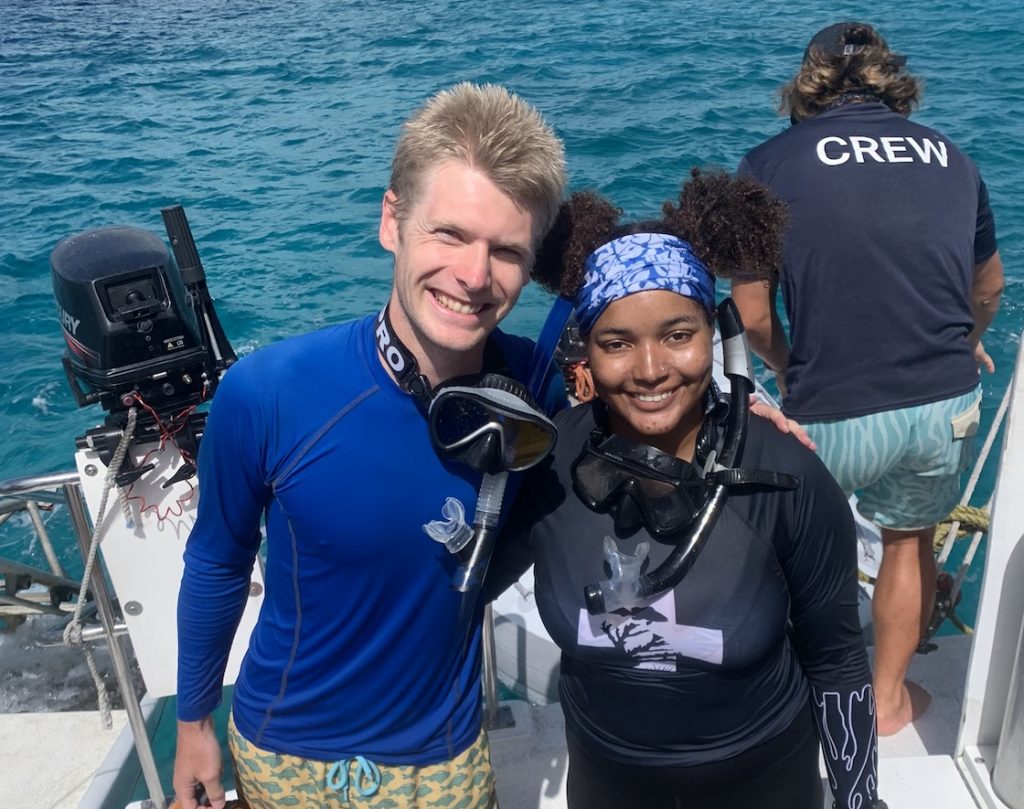
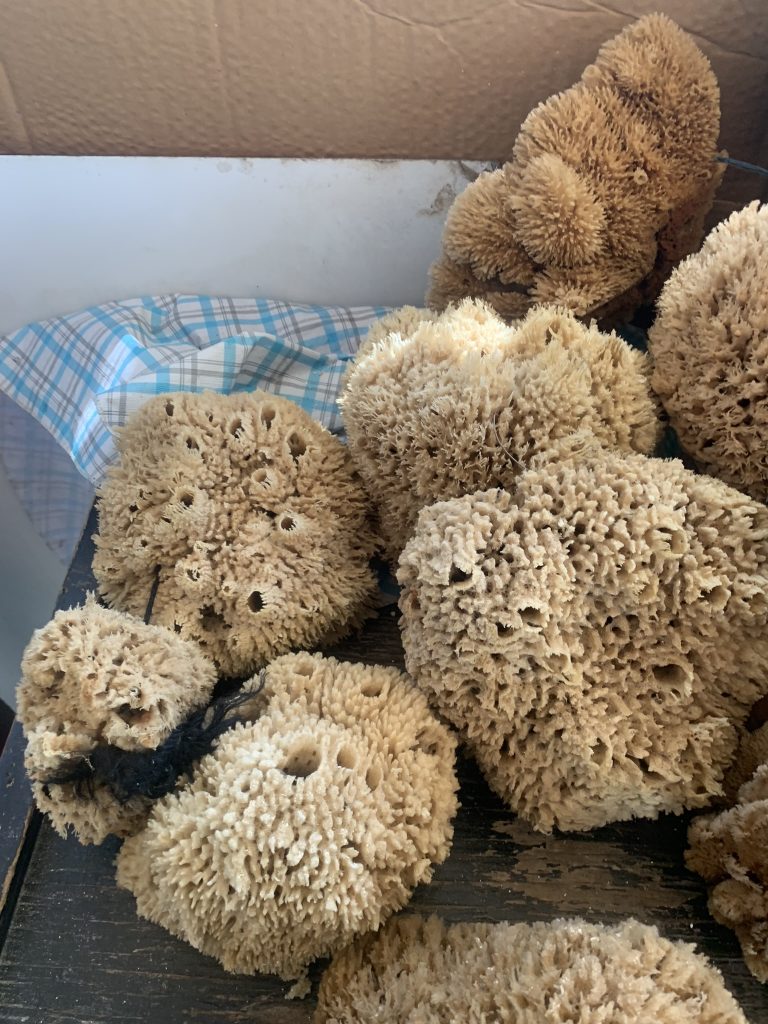
Dive Deeper
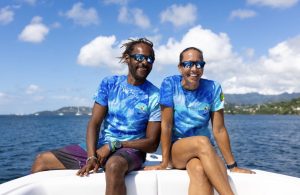
New Reef Rescue Sites Take Root in Barbados and Grenada
Barbados Blue and Eco Dive Grenada dive shop owners Andre Miller and Christine Finney (Credit: Eco Dive) Reef Rescue Network Expands to Barbados and Grenada The Perry Institute for Marine
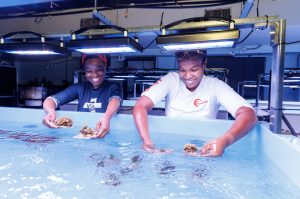
The Bahamas Just Opened a Coral Gene Bank—Here’s Why It Matters
The nation’s first coral gene bank will preserve, propagate and replant coral to reverse devastation from rising ocean temperatures and a rapidly spreading disease Video courtesy of Atlantis Paradise Island.
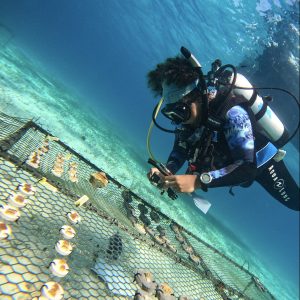
This Is What Conservation Leadership Looks Like
From Interns to Leaders: How PIMS is Powering the Next Generation of Ocean Advocates Taylor photographs coral microfragments in the ocean nursery, helping monitor their fusion into healthy, resilient colonies
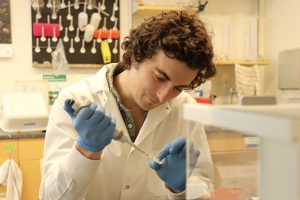
When Ocean Forests Turn Toxic
New study in Science connects chemical “turf wars” in Maine’s kelp forests to the struggles of Caribbean coral reefs — and points to what we can do next Lead author,
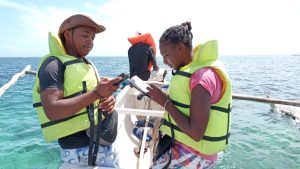
Who’s Really in Charge? Unpacking the Power Struggles Behind Madagascar’s Marine Protected Areas
Researchers head out to monitor Marine Protected Area boundaries—where science meets the sea, and local stewardship takes the lead. The Illusion of Protection From dazzling coral reefs to centuries-old traditions,
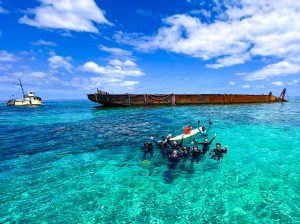
PIMS and Volunteers Step Up as Legal Battle Leaves Barge Grinding Reef in Fowl Cays National Park
Worn out but undefeated, the cleanup crew rallies around their paddleboard “workbench” in front of the stranded tug and barge—a snapshot of community grit after hours of underwater heavy‑lifting. Photo




